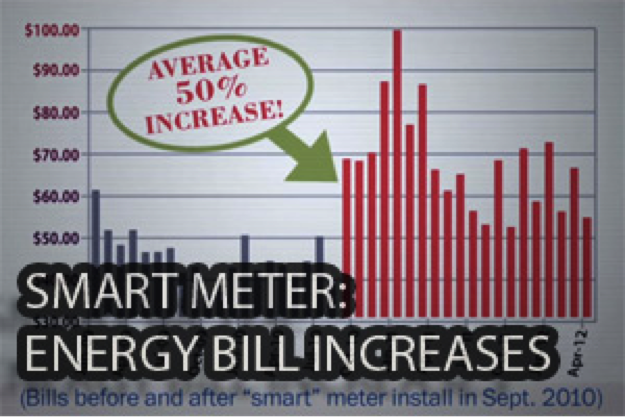A commentary on the confidence tricks embedded in the Efford Bill
16 November 2014
PART 1
AMENDMENTS TO SECTIONS WITHIN PART 1 OF THE NATIONAL HEALTH SERVICE ACT 2006, AS AMENDED BY THE HEALTH AND SOCIAL CARE ACT 2012
1 Duty on the Secretary of State to promote comprehensive health service based on social solidarity
For section 1 of the National Health Service Act 2006 as amended by section 1 of the Health and Social Care Act 2012 (Secretary of State‘s duty to promote health service) substitute—
“1 Secretary of State’s duty to promote comprehensive health service based on social solidarity
(1) The Secretary of State must continue the promotion in England of a comprehensive health service designed to secure improvement—
(a) in the physical and mental health of the people of England, and
(b) in the prevention, diagnosis and treatment of physical and mental illness.
(2) For that purpose, the Secretary of State must:
(a) exercise the functions conferred by this Act so as to secure that services are provided in accordance with this Act;
(b) ensure that the health service is a public service which delivers services of general economic interest and operates on the basis of social solidarity; and
(c) ensure that arrangements between commissioners and providers of health services require effective co-operation between different providers under this Act and between providers of health services and providers of community care services.
(3) The Secretary of State retains ministerial responsibility to Parliament for the provision of the health service in England.
(4) The services provided as part of the health service in England must be free of charge except in so far as the making and recovery of charges is expressly provided for by or under any enactment, whenever passed.”
2 Exercise of the Secretary of State‘s powers
After section 2B of the National Health Service Act 2006 insert—
“2C Duties and guidance in respect of cooperation and social solidarity
(1) The Secretary of State shall exercise his powers under this Act to promote the health service as an efficient service based on mutual cooperation and social solidarity and so as to ensure that that any person who is concerned in commissioning or providing health services for the purposes of the health service—
(a) adheres to such practices in relation to procurement as the Secretary of State identifies as being appropriate for the purposes of the health service;
(b) protects and promotes the right of patients to make choices with respect to treatment or other health care services provided for the purposes of the health service, in as much as the exercise of such choice is consistent with the overall interests of the health service;
(c) does not engage in anti-competitive or any other behaviour which the Secretary of State considers is against the interests of people who use health services.
(2) The Secretary of State shall be entitled to publish guidance for health service commissioners and providers concerning the matters set out in sub-section (1) above and where such guidance is published all health service commissioners and providers shall give due regard to the guidance when discharging any relevant function.
(3) The Secretary of State shall be entitled to seek such advice concerning the matter set out in sub-section (1) from such persons as he considers fit.
(4) The Secretary of State may issue directions to any health service body to support the discharge of the functions under sub-section (1).
(5) If any dispute arises with respect to whether any health service body or other person providing health service services has acted in accordance with the matters set out in sub-section (1) or has otherwise acted in a way that is anti-competitive or contrary to the interests of the health service, any health service body or provider of services under the National Health Service Act 2006 may refer a complaint to the Secretary of State.
(6) Where a complaint is made under sub-section (5) above the Secretary of State shall be entitled to adjudicate upon the complaint or to appoint a person to adjudicate upon the complaint if the Secretary of State considers that it is appropriate to do so.
(7) Any adjudication under this section shall be final and binding for all purposes.”
3 Duty on the Secretary of State regarding provision of certain services
(1) For section 3 of the National Health Service Act 2006 (Secretary of State‘s duty to promote health service) as amended by section 13 of the Health and Social Care Act 2012 substitute—
“3 Secretary of State‘s duty as to provision of certain services
(1) The Secretary of State must arrange for the provision of the following to such extent as he considers necessary to meet all reasonable requirements—
(a) hospital accommodation,
(b) other accommodation for the purpose of any service provided under this Act,
(c) medical, dental, ophthalmic, nursing and ambulance services,
(d) such other services or facilities for the care of pregnant women, women who are breastfeeding and young children as he considers are appropriate as part of the health service,
(e) such other services or facilities for the prevention of illness, the care of persons suffering from illness and the after-care of persons who have suffered from illness as he considers are appropriate as part of the health service,
(f) such other services or facilities as are required for the diagnosis and treatment of illness.
(2) The Secretary of State shall be entitled to delegate all or any part of the performance of the duty under sub-section (1) above to the Board.
(3) The Secretary of State may give directions to the Board concerning the performance of the duty under sub-section (1). one
(4) The Secretary of State shall be entitled to delegate the performance of the duty under sub-section (1) above to a clinical commissioning group for—
(a) persons who are provided with primary medical services by a member of the group,
(b) persons who usually reside in the group‘s area and are not provided with primary medical services by a member of any clinical commissioning group, and
(c) any other category of persons as set out in a Direction made by the Secretary of State.
(5) The Secretary of State may give directions to a clinical commissioning group concerning the performance of the duty under sub-section (1).”
4 Provision of high security psychiatric services
For section 4 of the National Health Service Act 2006 as amended by section 16 of the Health and Social Care Act 2012 substitute—
“4 Provision of high security psychiatric services
(1) The Secretary of State must arrange for the provision of hospital accommodation and services for persons who—
(a) are liable to be detained under the Mental Health Act 1983, and
(b) in the opinion of the Secretary of State require treatment under conditions of high security on account of their dangerous, violent or criminal propensities.
(2) The Secretary of State may delegate all or any part of the performance of the duty under sub-section (1) above to the Board.
(3) The Secretary of State may give directions to the Board concerning the performance of the duty under sub-section (1).
(4) The hospital accommodation and services mentioned in subsection (1) are referred to in this section and paragraph 15 of Schedule 4 (NHS trusts) as “high security psychiatric services”.”
5 Power of Secretary of State to direct certain health service bodies
For section 8 of the National Health Service Act 2006 substitute—
“8 Secretary of State’s directions to certain health service bodies
(1) The Secretary of State may give directions to any of the bodies mentioned in subsection
(2) about its exercise of any functions
(2) The bodies are—
(a) clinical commissioning groups,
(b) the Board,
(c) NHS Trusts, and
(d) Special Health Authorities.
(3) Nothing in provision made by or under this or any other Act affects the generality of subsection (1).”
6 NHS Contracts
For section 9 of the National Health Service Act 2006 substitute—
“9 NHS Contracts
(1) In this Act, an NHS contract is an arrangement under which one health service body (“the commissioner“) arranges for the provision to it by another health service body (“the provider“) of goods or services which it reasonably requires for the purposes of its functions.
(2) Section 139(6) (NHS contracts and the provision of local pharmaceutical services under pilot schemes) makes further provision about acting as commissioner for the purposes of subsection (1).
(3) Paragraph 15 of Schedule 4 (NHS trusts and NHS contracts) makes further provision about an NHS trust acting as provider for the purposes of subsection (1).
(4) “Health service body” means any of the following—
(a) the Board,
(b) a clinical commissioning group,
(c) an NHS trust,
(d) an NHS Foundation Trust,
(e) a Special Health Authority,
(f) a Local Health Board,
(g) a Health Board constituted under section 2 of the National Health Service (Scotland) Act 1978,
(h) a Special Health Board constituted under that section,
(i) a Health and Social Services Board constituted under the Health and Personal Social Services (Northern Ireland) Order 1972 (SI 1972/1265 (NI14)),
(j) the Common Services Agency for the Scottish Health Service,
(k) the Wales Centre for Health,
(l) the Care Quality Commission,
(m) National Institute for Health and Care Excellence,
(n) the Health and Social Care Information Centre,
(o) the Scottish Dental Practice Board,
(p) the Secretary of State,
(q) the Welsh Ministers,
(r) the Scottish Ministers,
(s) Healthcare Improvement Scotland,
(t) the Northern Ireland Central Services Agency for the Health and Social Services established under the Health and Personal Social Services (Northern Ireland) Order 1972,
(u) a special health and social services agency established under the Health and Personal Social Services (Special Agencies) (Northern Ireland) Order 1990 (SI 1990/247 (NI3)),
(v) a Health and Social Services trust established under the Health and Personal Social Services (Northern Ireland) Order 1991 (SI 1991/194 (NI1)),
the Department of Health, Social Services and Public Safety,
(x) a local authority exercising functions under this Act.
(5) An arrangement for the provision of goods or services by a health service body with a person who is not a health service body shall also take effect as an NHS contract if—
(a) the terms of the arrangement are reduced to writing or evidenced in writing; and
(b) the parties to the arrangement have recorded in writing that the arrangement shall operate as an NHS contract.
(6) Whether or not an arrangement which constitutes an NHS contract would apart from this subsection be a contract in law, it must not be regarded for any purpose as giving rise to contractual rights or liabilities.
(7) If any dispute arises with respect to such an arrangement, either party may refer the matter to the Secretary of State for determination under this section.
(8) If, in the course of negotiations intending to lead to an arrangement which will be an NHS contract, it appears to a health service body—
(a) that the terms proposed by another health service body are unfair by reason that the other is seeking to take advantage of its position as the only, or the only practicable, provider of the goods or services concerned or by reason of any other unequal bargaining position as between the prospective parties to the proposed arrangement, or
(b) that for any other reason arising out of the relative bargaining position of the prospective parties any of the terms of the proposed arrangement cannot be agreed, that health service body may refer the terms of the proposed arrangement to the Secretary of State for determination under this section.
(9) Where a reference is made to the Secretary of State under subsection (7) or (8), he may determine the matter himself or appoint a person to consider and determine it in accordance with regulations.
(10) “The appropriate person” means the Secretary of State or the person appointed under subsection (9).
(11) By the determination of a reference under subsection (8) the appropriate person may specify terms to be included in the proposed arrangement and may direct that it be proceeded with.
(12) A determination of a reference under subsection (7) may contain such directions (including directions as to payment) as the appropriate person considers appropriate to resolve the matter in dispute.
(13) The appropriate person may by the determination in relation to an NHS contract vary the terms of the arrangement or bring it to an end (but this does not affect the generality of the power of determination under subsection (7)).
(14) Where an arrangement is so varied or brought to an end—
(a) subject to paragraph (b), the variation or termination must be treated as being effected by agreement between the parties, and
(b) the directions included in the determination by virtue of subsections (11) or (12) may contain such provisions as the appropriate person considers appropriate in order to give effect to the variation or to bring the arrangement to an end.
(15) Payments made for the purposes of this Act by a commissioner to a provider may be designated as being a grant made by the commissioner to the provider for the purposes of the European Directive 2014/24/EU of the European Parliament and the Council.
(16) Where a commissioner enters or proposes to enter into an NHS contract under this section the commissioner shall also be entitled to provide that the provider has an exclusive right to provide those services for a defined period which for each such designation shall not exceed 10 years.
(17) Where a commissioner has made a designation under subsection (16) above it shall be entitled to remove the designation at any time.
(18) Any person who is aggrieved at the award of a designation to a provider under subsection (16) above may refer the matter to the Secretary of State for determination under this section.
(19) Notwithstanding the provisions of subsection (1) above, an arrangement between a commissioner and a provider for the provision of goods or services for the purpose of the health service shall not take effect as an NHS contract if, but only if—
(a) the terms of the arrangement are reduced to writing and have been signed by or on behalf of the commissioner and provider;
(b) the terms of the arrangement record in writing that—
(i) the parties have each proposed that the arrangement shall not operate as an NHS contract; and
(ii) the arrangements will continue to remain in force between the parties regardless as to whether the Secretary of State make s a determination under subsection (20) below;
(c) notice in writing of the arrangement has been given to the Secretary of State within 21 days of the date that the arrangement has been made together with a statement of the reasons why each of the commissioner and the provider wish the arrangement not to take effect as an NHS contract.
(20) Where the Secretary of State is given notice under subsection (19) above the Secretary of State may determine that the arrangement shall take effect as an NHS contract.
(21) Any determination by the Secretary of State under subsection (20) shall be made by the Secretary of State within 3 months of the date when the Secretary of State is given notice of the arrangement.”
PART 2
AMENDMENTS TO THE FINANCIAL POWERS OF NHS FOUNDATION TRUSTS AND NHS TRUSTS, AS AMENDED BY THE HEALTH AND SOCIAL CARE ACT 2012
7 Provision of goods and services by NHS foundation trusts
For section 43 of the National Health Service Act 2006 as amended by section 164 of the Health and Social Care Act 2012 substitute—
“43 Provision of goods and services and non-health service patient income cap
(1) The principal purpose of an NHS foundation trust is the provision of goods and services for the purposes of the health service in England.
(2) An NHS foundation trust may provide goods and services for any purposes related to—
(a) the provision of services provided to individuals for or in connection with the prevention, diagnosis or treatment of illness, and
(b) the promotion and protection of public health.
(3) An NHS foundation trust shall ensure that its total income from the provision of goods and services for provision of services provided to individuals for or in connection with the prevention, diagnosis or treatment of illness otherwise than for the health services or for which charges are made by the trust is not greater than either—
(a) such percentage of its total income from the provision of goods and services in connection with the prevention, diagnosis or treatment of illness as the Secretary of State shall direct; or
(b) such higher percentage as shall be determined by the Secretary of State for an individual NHS foundation trust.
(4) Every NHS foundation trust that undertakes the provision of goods and services to individuals for or in connection with the prevention, diagnosis or treatment of illness otherwise than for the health services or for which charges are made by the trust shall ensure that—
(a) the provision of such goods and services do not have any adverse impact on the ability of the trust to carry on its principal purpose; and
(b) health service patients who are provided with services by the trust under this Act benefit from the trust’s provision of such services.
(5) The Secretary of State shall publish a statement of the principles that the Secretary of State will apply in considering applications by NHS foundation trusts under subsection (3)(b) above.
(6) An NHS foundation trust may also carry on activities other than those mentioned in subsection (2) for the purpose of making additional income provided the NHS foundation trust is able to demonstrate to Monitor that—
(a) such activities ensure that it is better able to carry on its principal purpose; and
(b) that health service patients who are provided services by the trust benefit from such other activities of the NHS foundation trust.
(7) Each annual report prepared by an NHS foundation trust must include an assessment of the impact that income received by the trust under sub-sections (3) and (6) has had on the provision by the trust of goods and services for the health service and how the provisions in this section have been satisfied by the trust.
(8) The annual report of the NHS foundation trusts must include the views of the council of governors of the trust as to whether the provisions of this section have been satisfied where the trust has carried out any activities of a kind mentioned in subsection (3) and (6) above.
(9) Each document prepared by an NHS foundation trust under paragraph 27 of Schedule 7 (forward plan) must include information about—
(a) the activities other than the provision of goods and services for the purposes of the health service in England that the trust proposes to carry on,
(b) the income it expects to receive from doing so, and
(c) how the trust proposes to satisfy the conditions set out in this section in respect of each such activity.
(10) Where a document which is being prepared under paragraph 27 of Schedule 7 contains a proposal that an NHS foundation trust carry on an activity of a kind mentioned in subsections (3) and (6), the council of governors of the trust must inform Monitor of its views on whether the conditions set out in this section will be satisfied in relation to the proposed activity.”
8 NHS income and provision of goods and services
After paragraph 14(4) of schedule 4 to the National Health Service Act 2006 add—
“(4A) An NHS trust shall ensure that its total income from the provision of goods and services for provision of services provided to individuals for or in connection with the prevention, diagnosis or treatment of illness otherwise than for the health services or for which charges are made by the trust is not greater than either—
(a) such percentage of its total income from the provision of goods and services in connection with the prevention, diagnosis or treatment of illness as the Secretary of State shall direct;
(b) such higher percentage as shall be determined by the Secretary of State.
(4B) Every NHS trust that undertakes the provision of goods and services to individuals for or in connection with the prevention, diagnosis or treatment of illness otherwise than for the health services or for which charges are made by the trust shall ensure that—
(a) the provision of such goods and services do not have any adverse impact on the ability of the trust to carry on its principal purpose; and
(b) health service patients who are provided with services by the trust under this Act benefit from the trust’s provision of such services.
(4C) The Secretary of State shall publish a statement of the principles that the Secretary of State will apply in considering applications by NHS trusts under subsection (5)(b) above.”
PART 3
AMENDMENT OF PROVISIONS IN THE HEALTH AND SOCIAL CARE ACT 2012 RELATING TO COMPETITION AND PROCUREMENT IN THE HEALTH SERVICE AND CONNECTED AMENDMENTS
9 NHS trusts provision of non-health services
(1) Notwithstanding the provisions in Part 3 of the Health and Social Care Act 2012, no legally enforceable procurement obligations shall be imposed on NHS commissioners in relation to any arrangement which is proposed to take effect or takes effect by way of an NHS contract.
(2) Regulation 6 of the Public Contracts Regulations 2006 shall be amended by adding the following after Regulation 6(2)—
“(2A) These Regulations do not apply to the seeking of offers for the supply of any services that are proposed to be included within an NHS contract.”
10 Repeals
Sections 62(2), 62(3), 62(10), 67(3)(a), and 72 to 80 of the Health and Social Care Act 2012 are repealed.
11 Exemptions from the Competition Act 1998
Notwithstanding the provisions in Part 3 of the Health and Social Care Act 2012—
(a) The Competition Act 1998 shall not apply to the discharge of any functions by the Secretary of State or an NHS body in relation to the exercise of powers or the discharge of duties under the National Health Service Act 2006.
(b) Any person commissioning or providing services for the purpose of the health service shall not for that purpose be an undertaking for the purposes of the Competition Act 1998.
(c) The Enterprise Act 2002 shall not apply to any proposed merger involving an NHS or an NHS foundation trust.
12 Mergers of NHS trusts or foundation trusts to require the consent of the Secretary of State
Any merger involving an NHS Trust or an NHS Foundation Trust or the acquisition or disposal of significant property by an NHS Trust or an NHS Foundation Trust shall require the consent of the Secretary of State.
13 Regulations requiring NHS trust and foundation trust mergers to be in patients’ interests
(1) In discharge of the Secretary of State‘s duties under the National Health Act 2006, as amended by the Health and Social Care Act 2012, the Secretary of State may make Regulations which require the Secretary of State to provide approval in writing of—
(a) any merger involving an NHS trust or an NHS foundation trust;
(b) the acquisition or disposal of significant property by an NHS trust or an NHS foundation trust.
(2) Regulations may provide that the Secretary of State should only give an approval under subsection (1) above if the Secretary of State is satisfied that the proposed merger or property acquisition or disposal is in the interests of patients.
(3) The Secretary of State may provide guidance about—
(a) the circumstances in which an acquisition or disposal of property by an NHS trust or an NHS foundation trust shall be significant;
(b) the processes that an NHS trust or an NHS foundation trust should follow in order to seek the consent of the Secretary of State; and
(c) how the Secretary of State will apply any patient interest test set out in Regulations.
PART 4 THE NHS AND NATIONAL OR INTERNATIONAL AGREEMENTS
14 NHS exemptions from proposed Transatlantic Trade and Investment Partnership Treaty
(1) No ratification by a Minister of the Crown of the proposed Transatlantic Trade and Investment Partnership Treaty shall cause any legally enforceable procurement or competition obligations to be imposed on any NHS body entering into any arrangement for the provision of health services in any part of the health service.
(2) In this section “any part of the health service” shall mean any part of the health service in England under the National Health Service Act 2006, the health service in Scotland under the National Health Service (Scotland) Act 1978, the health service in Wales under the National Health Service (Wales) Act 2006 or the health service in Northern Ireland operated by the Department of Health, Social Services and Public Safety under the Northern Ireland Act 1998.
PART 5 GENERAL
15 Extent, citation and commencement
(1) Sections 1 to 13 of this Act apply to England only.
(2) Sections 14 and 15 of this Act apply to England, Wales, Scotland and Northern Ireland.
(3) This Act may be cited as the National Health Service (Amended Duties and Powers) Act 2014.
(4) This Act comes into force three months after it is passed.
Bill 18
(xxxxxx)
55/4
National Health Service (Amended Duties and Powers) Bill
© Parliamentary copyright House of Commons 2014
This publication may be reproduced under the terms of the Open Parliament Licence, which is published at http://www.parliament.uk/site-information/copyright.
PUBLISHED BY AUTHORITY OF THE HOUSE OF COMMONS
LONDON — THE STATIONERY OFFICE LIMITED
Printed in the United Kingdom by The Stationery Office Limited
A BILL To re-establish the Secretary of State‘s legal duty to provide national health services in England, to amend the provisions of the Health and Social Care Act 2012 relating to Monitor; to repeal the Regulations made under section 75 of that Act; to make other amendments to the provisions in that Act relating to competition and provision of private health services; and for connected purposes.
Presented by Clive Efford, supported by Frank Dobson, Ms Karen Buck, Mr Andy Slaughter, Grahame M. Morris, Diana Johnson, Alison Seabeck, Shabana Mahmood, Steve Rotheram, John Healey, Mr Dennis Skinner and Angela Smith.































